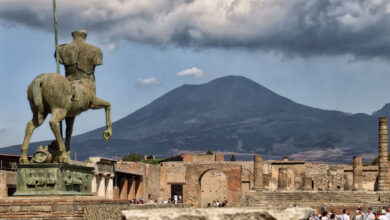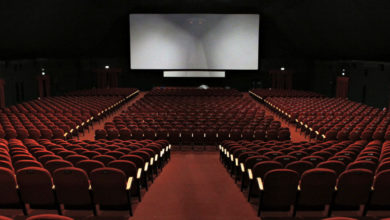Podcast: Play in new window | Download
Have you ever wondered how the high-speed world of Formula 1 came to be?” Picture this, it’s the early twentieth century and motor racing is gaining traction. But it was not until the mid-century mark, in nineteen fifty, that the Formula 1 World Championship was officially born. The birthplace of this high-octane sport was none other than Silverstone, England, a venue that has since become iconic. The inaugural race was a spectacle, setting the tone for what was to come. Yet, amidst the adrenaline and excitement, one man emerged victorious, claiming the first championship title. His name was Giuseppe Farina, an Italian driver who carved his name into the annals of motor racing history. From the roaring engines of those early days, a thrilling journey began. A journey that has seen heroes rise, records shattered, and has captivated audiences worldwide. “The roaring engines of the 1950s were just the beginning of a thrilling journey that has captivated audiences worldwide.
As the years sped by, the world of Formula 1 didn’t just idle in the pit lane. Indeed, it was a period of rapid acceleration, with the sixties to nineties seeing a quantum leap in technology and competition. This era was marked by a seismic shift where race cars morphed from being front-engine behemoths to sleek, rear-engine speedsters. It was a change driven by a realization that the rear-engine design offered better weight distribution and improved handling, vital elements in the high-speed, adrenaline-fueled world of Formula 1. But that wasn’t the end of this technological revolution. Aerodynamic wings, once a mere concept, found their way onto the race track. These seemingly simple additions transformed race cars into avian-inspired marvels, hugging the road and slicing through the air with increased precision and speed. The impact was immediate and profound, forever changing the face of racing. Yet, as the machines evolved, so too did the competition. The landscape of Formula 1 was no longer a playground for the casual enthusiast. It had become a battleground where the greatest talents of motor racing clashed in a high-octane spectacle. Names like Ayrton Senna and Michael Schumacher echoed around the circuits, their legendary status cemented with each daring overtake, each victory seized from the jaws of defeat. These titans of the track, with their unparalleled skill and audacious driving styles, pushed the boundaries of what was thought possible in a Formula 1 car. Their duels became the stuff of legend, a testament to the human spirit’s relentless pursuit of excellence. They embodied the thrill of Formula 1, their stories intertwined with the roar of engines, the screech of tyres, and the cheers of millions. From the rumble of engines to the clash of titanic talents, Formula 1 was shaping up to be a spectacle like no other.
Entering the 21st century, Formula 1 didn’t just gear up; it went full throttle. The roar of the engines was matched only by the roar of the crowds as Lewis Hamilton, a name synonymous with the modern era, carved his name into the annals of the sport. His achievements, breaking barriers and records alike, propelled Formula 1 into a new stratosphere of popularity. But it wasn’t just the drivers making waves. The advent of hybrid technology marked a turning point, combining the raw power of traditional engines with the cutting-edge innovation of electric power. This wasn’t just about speed, but also about efficiency, sustainability, and the future of motor racing. And what a future it promises to be. The global expansion of the sport has seen new tracks, new teams, and new fans from all corners of the globe. The thrill of Formula 1 is no longer confined to traditional strongholds; it’s a worldwide phenomenon. Yet as we look to the future, we see more than just new faces and places. The potential of fully electric power looms large on the horizon, promising a cleaner, greener future for the sport. And the ongoing strive for safety improvements continues to be at the forefront, ensuring the thrill of the race never comes at the cost of the racers. As the chequered flag waves on our journey through time, one thing is clear: Formula 1 is not just a sport, it’s a testament to human innovation and competitive spirit.
So, where does that leave us in the grand scheme of Formula 1 history?” We’ve journeyed from the birth of Formula 1, witnessed its staggering evolution in technology and competition, and peeked into its promising future. We’ve seen how it’s more than just a sport, but a testament to human ingenuity and a symbol of our relentless pursuit of speed. “From its humble beginnings to its high-octane present, Formula 1 continues to fuel the passions of fans across the globe. It’s not just a sport; it’s a thrilling chapter in the book of human achievement.
Podcast: Play in new window | Download





